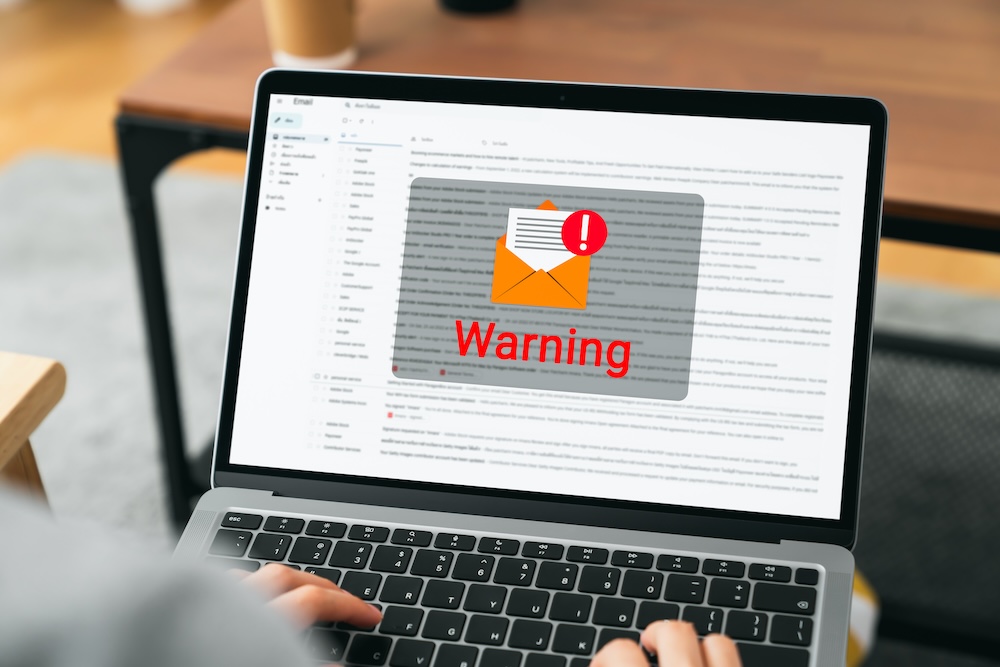In today’s hyperconnected and increasingly digital world, phishing emails have emerged as one of the most pressing threats to businesses. Cybercriminals are constantly refining their tactics, using these malicious emails to exploit vulnerabilities, steal sensitive data, and disrupt operations.
While phishing attacks are not new, their growing sophistication and frequency with the addition of AI make them a challenge that businesses of all sizes must address head-on. So, how do these attacks work, and what steps can organizations take to defend against them? Let’s explore these questions and understand why phishing awareness and training are more critical than ever.
What Makes Phishing Emails Such a Threat to Businesses Today?
Phishing emails are a form of social engineering—a psychological tactic designed to deceive recipients into revealing confidential information or performing harmful actions, such as clicking on malicious links or downloading infected attachments.
What makes phishing emails particularly dangerous is their evolution over time. Cybercriminals now deploy techniques that closely mimic trusted entities, such as established brands, business partners, or even internal colleagues. These deceptive emails are designed to bypass suspicion, making it easier for attackers to infiltrate organizations.
Some alarming facts about phishing attacks include:
- Primary Attack Vector: Most malware and ransomware are delivered through email, cementing phishing as a primary attack method.
- Financial and Reputational Damage: Successful phishing attacks can lead to stolen funds, compromised data, and damaged reputations—issues that can take years to recover from.
- Universal Risk: Phishing targets businesses across all industries and sizes, proving no one is immune.
How Can Businesses Defend Against Phishing Attacks?
Protecting against phishing requires a multi-layered approach that combines technology, policy, and—most importantly—people. Employees often represent both the weakest link and the first line of defense, which makes their training and awareness crucial.
Here are the core elements of an effective defense strategy:
1. Awareness and Training
Employees need to be educated about the common signs of phishing emails, such as unexpected attachments, requests for confidential information, and unusual sender addresses. Comprehensive training programs can teach employees how to recognize and respond to these threats effectively.
2. Simulated Phishing Campaigns
One of the best ways to prepare employees is through simulated phishing campaigns. These controlled exercises mimic real-world phishing scenarios, helping employees gain hands-on experience in identifying suspicious activity.
3. Robust Security Infrastructure
Investing in email filters, endpoint protection, and multi-factor authentication adds layers of security that make it harder for phishing emails to reach their targets.
4. Incident Response Plan
Having a clear, actionable plan for responding to phishing incidents is vital. Employees should know whom to contact and how to contain the threat immediately.
What Are the Benefits of Implementing Phishing Awareness Programs?
Phishing awareness programs are invaluable for businesses seeking to reduce risk and strengthen their cybersecurity posture. When done right, these programs go beyond theoretical knowledge, equipping employees with practical skills to combat phishing attempts effectively.
The key benefits of such programs include:
- Real-World Relevance: Awareness programs mirror the tactics used in current phishing campaigns, ensuring that training remains up-to-date and effective.
- Hands-On Learning: Interactive modules, quizzes, and incident simulations engage employees and reinforce critical concepts.
- Measurable Progress: Detailed reports track employee performance, highlight vulnerabilities, and provide actionable insights for improvement.

The Importance of Conducting Phishing Campaigns
Phishing campaigns are more than just training exercises—they’re an essential component of a proactive cybersecurity strategy. These campaigns help organizations identify vulnerabilities, improve employee readiness, and reduce the likelihood of a successful attack.
Here’s why every business should incorporate phishing campaigns into its security plan:
1. Real-Time Vulnerability Assessment
Simulated phishing campaigns reveal which employees are most susceptible to attacks, enabling businesses to address specific areas of weakness before a real incident occurs.
2. Practical Reinforcement
Regular campaigns reinforce training by giving employees the opportunity to apply their knowledge in realistic scenarios. This repetition builds confidence and long-term retention of best practices.
3. Fostering a Cybersecurity Culture
Consistent phishing campaigns help create a culture of vigilance, where employees are proactive in identifying and reporting suspicious activity.
4. Reducing the Risk of Breaches
By continually testing and improving employees’ ability to recognize phishing attempts, businesses can significantly lower the chances of a successful attack.
5. Actionable Insights for Improvement
Campaign results provide detailed metrics, enabling organizations to fine-tune their training programs and adapt to emerging threats.
Preparedness Is Key in an Evolving Threat Landscape
Phishing attacks are not going away anytime soon. On the contrary, they are growing in complexity and targeting businesses with increasing frequency. Staying ahead requires a combination of cutting-edge security solutions and a workforce that is educated, vigilant, and prepared to act as a human firewall.
By implementing robust phishing awareness programs and conducting regular simulated campaigns, organizations can protect their data, safeguard operations, and empower employees to become active participants in cybersecurity.
Don’t wait for a breach to expose vulnerabilities in your defenses. Start building resilience today with tailored phishing awareness initiatives and proactive campaigns designed to keep your business secure.

Ready to Take the Next Step?
At HubTGI, we’re here to help you navigate the complexities of phishing threats and build a robust cybersecurity strategy. Contact us today to learn how we can support your efforts to protect your business and empower your team.
About hubTGI
hubTGI is a Canadian-owned Managed Services provider that offers Print Services, Workflow Solutions, Managed IT, Cybersecurity Solutions, Cloud Services and VoIP to help their customers control costs, secure their data and make their people more productive.
For the latest industry trends and technology insights visit hubTGI’s Resources page.







